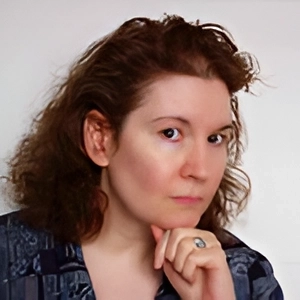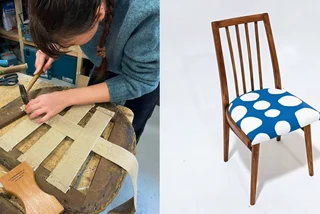Last year, I experienced a concerning health symptom. I went to the doctor, and that same day, a long healthcare journey began. The doctor referred me to a specialist, whom I saw the next morning. After examining me, the specialist said I needed to return in two weeks to see the department head.
After an ultrasound, MRI, and second appointment, the head of the department told me bluntly: “You have cancer.” He outlined chemotherapy and surgery plans. It was difficult to process the severe news. I had just entered the oncological care system, facing a long road ahead.
The World Economic Forum has ranked the Czech Republic in the top 10 countries globally for oncology treatment quality. In a 2021 interview, Dr. Robert Cook, a researcher participating in the Economist Impact study on oncology in 20 countries, praised the country’s "very high” scores for care policies, planning, data collection, and specialized centers.
Tough navigation and lots of paperwork
But navigating the oncology system can be difficult for those who don’t speak Czech. Later on in my treatment when speaking to the same doctor who handed me my diagnosis, I mentioned that I had received no information about what I could expect during and after treatment. “Patients in other countries get information packets,” I said.
The doctor told me that this wasn’t common in the Czech Republic. I did most of my research online. Blogs by other patients helped make the process more human. I discovered that I needed to keep asking questions to learn more. However, after a string of questions during one visit, the doctor told me that he had other patients waiting and that I needed to leave.
What else did I learn? I discovered that the oncology care system operates mechanistically, following paperwork trails from appointments to tests to specialists.
Due to the General Data Protection Regulation (GDPR) in the EU, doctors in different facilities do not automatically share patient information. If a doctor requires knowledge about a patient’s history or treatment from another doctor, the patient must bring the relevant documents. I had to carry all my medical records and test results between appointments, as I did not know what information each specialist might need.
My treatment required appointments with many different specialists, including ultrasounds, MRIs, PET/CT scans, regular blood tests, checkups, and even a visit to a geneticist. Coordinating and keeping track of all these appointments and tests was challenging.
Quality treatment and communication
I received treatment at Motol Hospital in Prague, the largest hospital in the Czech Republic and one of the largest in Europe. A key benefit was that patient records were electronically shared between departments. Staff could simply look up my records to access all relevant medical details, rather than me having to carry papers between visits. At the patient level, this meant receiving high-quality care through numerous scans, tests, and specialist visits necessitated by my condition.
The advantages of universal healthcare coverage were never more appreciated than after my diagnosis. My health insurance covered doctors, facilities, tests, surgery, and most medications.
Out-of-pocket costs covered certain medications, taxi rides to and from appointments, and private hospital rooms should you need surgery – I had radical surgery, in between the two halves of the chemo treatment. To my astonishment, I found myself in the ICU for three days after surgery, a revelation that surprised me. When I inquired about this a few months later, the oncologist seemed taken aback. “It is standard practice,” she clarified. The overall hospital stay lasted one week.
Recovery with help of family and Czech spas
Life becomes a blur of side effects, sleep, and appointments during treatment. Chemo-induced immune system suppression necessitates limited social contact. You may lose some of the sensation in your fingers and toes. You cannot do things you once did easily, such as cleaning. You will need a lot of help from your family and friends.
Although physically draining, recovery brings joy. When the chemo ended, my hair began to grow; the fatigue wasn’t as severe. Finally, I began to look like myself.
This did not mean, however, that I was done with visiting doctors. I still had (and have) many more visits to make. Blood tests, checkups, the works.
Going through harsh treatment that involves hair loss, vomiting, fatigue, and mood swings demands not just medical but mental health support. Amelie, a support service for patients receiving oncological treatment has a hotline and English-language website.
One upside of facing cancer in the Czech healthcare system is eligibility for a spa stay as part of my recovery from oncological treatment. As many expats may appreciate, the Czech Republic is well-known for its exceptional spas, each with its unique specialization. The oncologist carefully selects the most suitable one for the patient. The minimum three-week stay is typically covered by insurance, and your GP can assist in initiating a medical leave for this much-needed period of rejuvenation.
Helpful tips for cancer patients navigating the Czech system
- Request medical leave through your GP for the required absence from work; this is done online. Your GP can end the medical leave when you’re ready to return to work. Being on medical leave means reduced pay from your job (approximately 60 percent of your regular monthly income).
- Other facilities in Prague offer oncological care, including the Complex Oncological Center (Prague 2), Na Homolce (Prague 5), Central Military Hospital (Prague 6), and Proton Therapy Center (Prague 8).
- Motol specializes in diverse cancer cases, focusing on rare tumors, and is one of only two national centers. Patients might be referred to other locations for specific tests, such as PET/CT scans, which are unavailable at Motol.












 Reading time: 4 minutes
Reading time: 4 minutes 





























